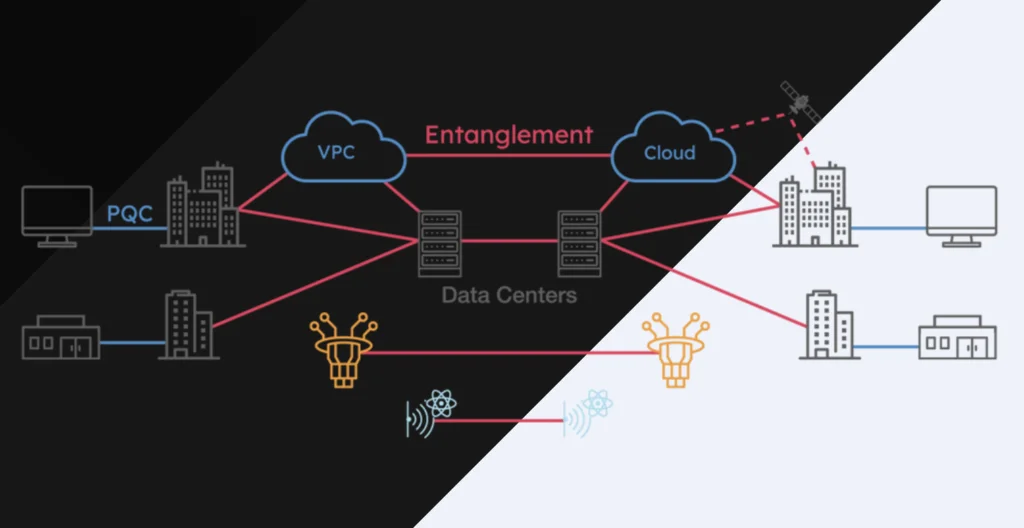Unprecedented Times
We live in times that are unprecedented, at least in a technological sense. Artificial intelligence (AI) and quantum computing (QC) being two of the most promising. But there are others, too: blockchain, the Internet of Things (IoT) and who can forget the role Bitcoin and other cryptocurrencies will play in the future? Yet, the underlying technology that will — if it promises to do what tech industry experts are saying it will do — change the technological landscape forever is something else.
6G networks will be the basis, the foundation, for all the above, acting as a superhighway access point for them to perform to the best of their abilities.
Haven’t you missed something?

You mean 5G? Oh, yeah.
— Tweet from President Donald Trump
Although 5G is still unavailable to the masses, that hasn’t stopped companies and governments researching into 6G.
Still, why are we jumping way ahead of ourselves when most of us are still using 3G and 4G technology?
Arrogance and hubris?
It wouldn’t surprise me. For our species is not one to belittle itself.
Because as humans, we are always pushing ourselves and the boundaries of our potential, trying to — as in the famous words of William Shatner — ‘to boldly go’ somewhere. Split infinitives aside, it’s because we are who we are that we need to.
Our minds, and the inventions that easily follow from the cerebral gymnastics, take us to destinations quicker than we realize.
From 1G to the wonders of 5G seems like yesterday, a flash in the pan through time and space. And 6G, I suppose, is just a natural progression.
Sometimes we’re just too clever for our own good.
The G-Force
So, it’s the G-force that’s the way forward. It won’t matter if we call it 6G or 7G or 8G as we go along. A name, at the end of the day, is just a name, an epithet of convenience. What’s important, when they do come, is how they will help us through the speed of its connectivity, and especially with the rapid rate of progress we see in quantum technology and AI.
That’s all that matters.
So, when can we expect this magic pill to show its face?
Crystal Ball
Some industry experts put a date at 2030 or at least running trials on the technology. That puts us at approximately ten years, the same timescale as the introduction of 4G and 5G networks. 4G first saw the light of day in Finland in 2009, so we’re on a good path to achieving our goals.
If this is, in fact, the case, can we see an upgrade in ‘G-technology’ networks every decade?
Judging by recent trends, I guess it is.

As classical computers start squeezing out the last drops of utilization from the ever-decreasing size of their chips and transistors, as per Moore’s Law (though reports from Intel believe the law’s not dead) and quantum computers become more advanced, along with their algorithms, faster, more advanced networks will definitely be needed to cope with the extra workload.
Harnessing the power that 6G will bring in relevance to QC and AI is intoxicating just to think about it.
There are some doubters out there, however, who believe 5G network technology will suffice for all we require from classical computer systems, that if we continually improve upon the 5G technology we have, there will be no need to make the leap to a faster alternative.
‘It is clear that 5G will be more than a new mobile network infrastructure. It will use multiple forms of connectivity and if done right there will never be a need for a 6G’
— Lev Rolando, former Chief Convergence Officer
Still, there are others who go farther, advocating a quantum internet, built on the premise of quantumness and all the other strange, subatomic paradoxes that are not of the classical world of physics.
But the proof of concept is a long way off.
For now, though, it is a dream, an aspiration for another time in the future when we will be able to control qubits and qudits and control and store the information on them properly.
‘Quantum internet’ is a vague term. People, including myself, like to use it. However, there’s no real definition of what it means.’
— Physicist Thomas Jennewein of the University of Waterloo
Still, if it is invented, maybe 6G technology can serve it well, just like 3G and 4G have served us all for the last twenty years.
















